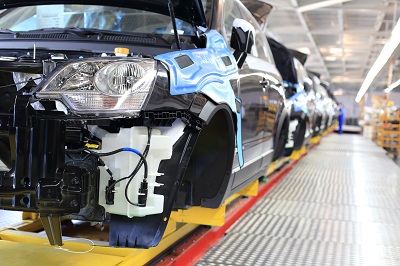
by Thomas Firey
Hohmann and Ryan should be congratulated: in tying jobs to government-imposed automobile fuel mileage standards…they offer an even worse justification for CAFE than the ones policymakers usually provide.
Washington Post national political correspondent James Hohmann offers this example of how President Trump’s policies are hurting “his” voters:
General Motors is cutting its second shift at the Lordstown Assembly plant outside of Youngtown, Ohio, next month. The move could cost 1,500 jobs at the 3,000-employee plant that builds the Chevrolet Cruze. … GM says it’s downsizing because there is “lower customer demand for compact cars.” The plant already downsized last year, moving from three shifts to two, partly because consumers are buying more crossovers, SUVs and trucks at the expense of smaller vehicles.
Rep. Tim Ryan (D-Ohio), who represents the plant, blames reduced demand, and the pending layoffs, on Trump’s decision to scrap fuel efficiency standards–which the auto companies did not want. “While low gas prices paved the way for the decline of compact cars … Trump’s April announcement to weaken fuel economy standards put his thumb on the scale in favor of the larger cars and SUV’s made elsewhere, hurting our community specifically,” the congressman said in a statement last Friday. “The truth is, the fuel economy standards help sell more Chevy Cruzes.”
Hohmann and Ryan should be congratulated: in tying jobs to government-imposed automobile fuel mileage standards (known as “CAFE” among the acronym-loving folks inside the Beltway), they offer an even worse justification for CAFE than the ones policymakers usually provide.
Congress first authorized CAFE in 1975, in the wake of the 1973-1974 Arab Oil Embargo. Lawmakers’ obvious intent was to reduce U.S. oil consumption and consumer spending on gasoline. However, the 21% spike in real gas prices between 1971 and 1974 seemed to provide consumers–and by extension, automakers–with for more fuel-efficient vehicles without any push from government. Nonetheless, the federal government has upped the fuel efficiency standards many times over the years, and has queued up more increases for the next decade.
However, the fuel efficiency regime they created is a convoluted one. Originally, it divided most passenger vehicles into two categories–cars and light trucks–and set different fuel standards for each. The standards didn’t require that every car and truck meet the applicable CAFE number, but rather that all the vehicles sold in the American market by each automaker average out to the relevant CAFE standard (hence the words behind the acronym: Corporate Average Fuel Economy). This opened the way for all sorts of marketplace mischief, including the rise in popularity of SUVs (which were classified as light trucks and subject to a lower gas mileage standard) and the collapse in demand for station wagons (classified as cars), as well as the cross-subsidization of smaller (and seemingly less safe) vehicles by larger vehicles. CAFE has only grown more convoluted–and more mischief-prone–over time.
In recent years, policymakers have added a second justification for CAFE: to fight climate change by reducing vehicle greenhouse gas emissions. However, the fuel standards do this only indirectly, controlling the amount of hydrocarbon fuel consumed per mile rather than the amount of carbon and other greenhouse gases expelled in total. A simple carbon tax would be a much more direct and efficient way to cut these emissions.
Now Hohmann and Ryan are offering a “jobs” justification. Admittedly, they don’t explicitly say the Trump administration should have kept the planned CAFE increases in order to preserve current jobs, but their criticism of the policy change is just short of a call for industrial policy.
And it’s not a particularly sensible criticism, even if we were to embrace CAFE as industrial policy. Yes, jobs at the Lordstown Cruze plant may be lost because government isn’t pushing consumers to purchase vehicles that they otherwise wouldn’t. But those consumers will instead purchase more of the vehicles they prefer: crossovers, SUVs, and light trucks, as Hohmann acknowledges. And plenty of American workers are employed in making those automobiles.
Whatever the merits of the Trump Presidency (and count me among its critics), many of candidate Donald Trump’s voters were attracted to him for his promise to not use government to distort the will of Americans, but instead to respect that will. Using CAFE as industrial policy is a case of distorting that will; far from Ryan’s claim that Trump is “put[ting] his thumb on the scale,” the Trump administration move is (partly) taking government’s thumb off of the scale. It’s doubtful that many Trump voters will be upset that government won’t be using fuel efficiency standards to coerce automobile buyers in order to protect some particular jobs at one particular factory.
Thomas A. Firey is a Cato Institute senior fellow and managing editor of Cato’s journal Regulation.

READER COMMENTS
Alan Goldhammer
May 24 2018 at 12:24pm
The current federal gas tax has been constant for a lot of years and is insufficient to fund the road and bridge repairs that are needed. Perhaps if it had been allowed to rise higher by a simple inflation adjustor, increased gas prices would be the needed economic spur for smaller cars. We’re in Spain on holiday and that’s pretty much why one sees small cars over here. In was surprised when a cab driver in San Sebastian picked is up in a Lexus (though I think it was a bit smaller than the model sold job the U.S.).
I have never been a fan of CAFE; the economic approach is better.
Vancouver Dispensary
Jun 4 2018 at 9:53pm
Major thanks for the article post.Thanks Again.
Dispensary Vancouver
Jun 4 2018 at 11:45pm
whoah this blog is great i love reading your articles. Keep up the good work! You know, many people are searching around for this information, you can aid them greatly.
Dispensary
Jun 5 2018 at 1:39am
they all are tired from white teeth thats why they put gold or silver teeth!!!!
Comments are closed.